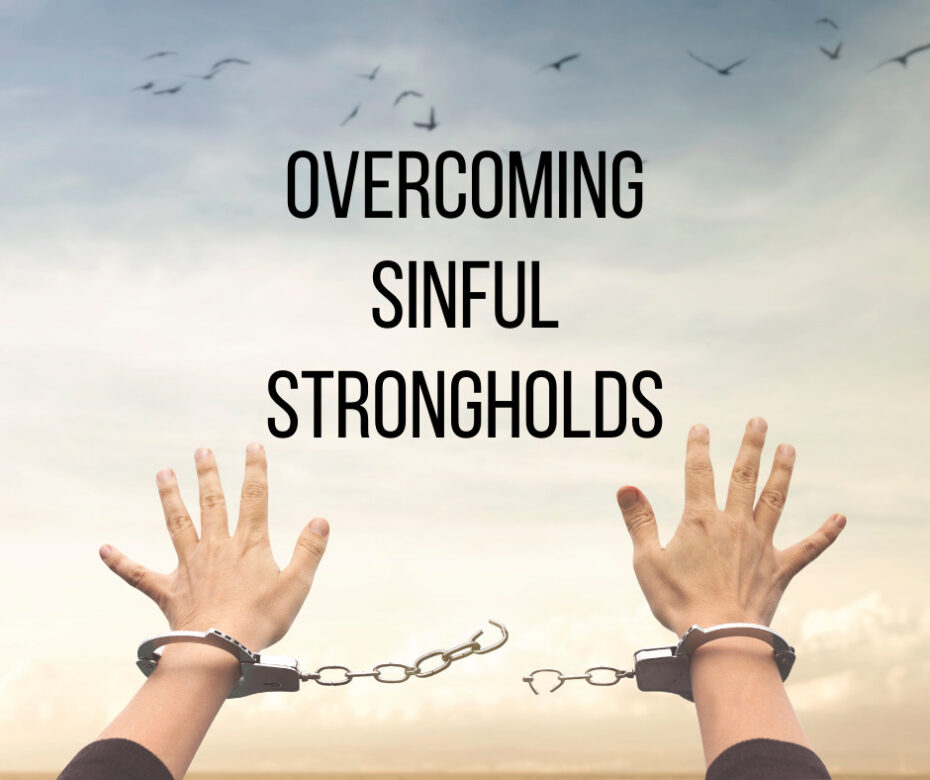Q. I read your blogs about growing up (see here and here). Do you believe a Christian can have strongholds in his or her life, and if so, do you have some Biblical information on that topic that you can share sometime?
A. I’m not entirely familiar with the term “strongholds,” but I think you mean areas of your life where you struggle with sin.
We all have those areas.
And we are not always aware of how many of those areas we have.
I think that as you mature in the Christian life, the Holy Spirit will convict you of more and more sin. For example, before having kids, my wife and I would have said we were as cool as cucumbers. But after having kids, we realize we both have anger issues! That was always an area of weakness for us—we just didn’t know it yet.
But how do you overcome those “strongholds”?
Here is part of the answer. It’s not the whole answer—just a part.
As Paul wrote the Ephesians, putting off the old self and putting on the new self requires that you “be renewed in the spirit of your mind” (Eph 4:23). That is true for overcoming strongholds, too.
How does that work?
Let me give you a personal example.
Before I became a Christian, I loathed people who did drugs, especially kids my age. I looked down on them. I judged and despised them. There were many reasons for that, including having seen how drugs devastated my extended family, and constantly being told in school to “Just say no!” Still, instead of loving my neighbor, I hated him.
Then I came to believe in Jesus. And a few years later, the Lord led me to minister to street people, and specifically to street kids, i.e., to “punks.” After all, Jesus had a lot to say about loving people, especially the poor, in practical ways. So I wanted to obey the Lord.
On Friday nights, I would bring soup and sandwiches to the panhandlers on St. Catherine Street. Many of them were punks about my age (teens to twenty-something). Their signs would read, “Need money for beer and drugs.” Pedestrians would laugh at their honesty and would give them money. I gave them homemade soup and sandwiches.
Many of the punks were French. But there was a particular group of English-speaking punks that I came to know.
After about half a year or more of feeding them every Friday night, one of them invited me to visit where he lived.
At first, I was terrified. I had to travel to an awful part of town, up to a dilapidated building covered in graffiti, with menacing punks standing outside. At first, they glared and made threatening gestures as I went up and knocked on the sticker-covered door. The person who invited me over welcomed me in and introduced me to the “head” punk who had signed the lease. His name was “Fats” for reasons you can imagine. When Fats told everyone I was cool, they all left me alone from that day on.
Then, every two weeks (payday), I would bring groceries, visit, and talk.
I was surprised to learn that when they were not begging or getting drunk or going to concerts, they played Tetris on the original Nintendo system.
I learned their stories. Some had come from horrible homes, while others had come from normal homes. Some were into hard drugs, while others hated the “gutter punks” who did.
Every week, they would hear about another friend who was thrown in jail or who got killed in a fight or who died of an overdose. It was a tragic life.
I learned to see those kids, not as punks, but as people—people whom Jesus loves and for whom He died.
Long story short, my mind changed.
I began by hating punks, but after I came to believe in Jesus, the Lord made me deal with that sin by serving and sacrificing for the very people I hated. And over time, I slowly grew to love them.
“But I say to you, love your enemies, bless those who curse you, do good to those who hate you, and pray for those who spitefully use you and persecute you” (Matt 5:44).
The Lord has done that to me in several different areas of life.
I think that to overcome an area of sin in your life, you must confront it head–on. That always includes learning what the Word of God says about that sin (John 17:17).
It often means getting to know the people you hate.
And it often requires learning about how genuinely harmful the sin is to yourself and to the neighbors around you.
And when the sinfulness of sin sinks in, your mind can be renewed, the strongholds can fall, and your behavior can better reflect the truth of who you are in Christ.


